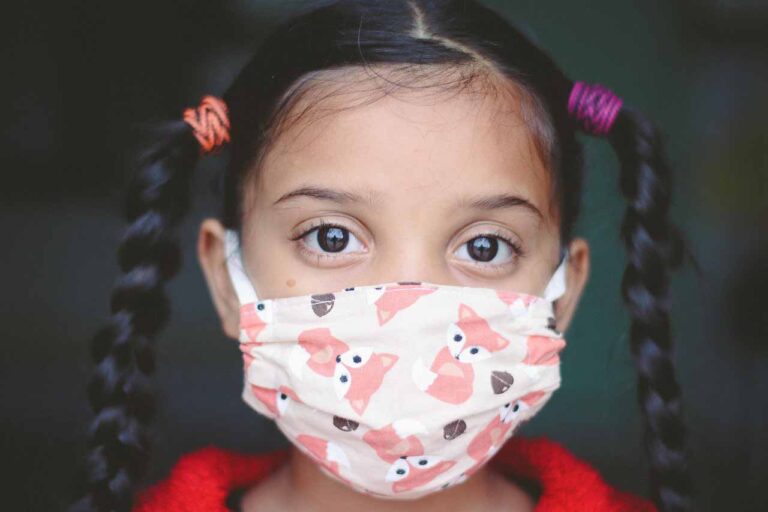How Do Face Masks Affect The Eyes?

Within the past year, face masks have become essential to our daily wear routine and has proven to curb the spread of COVID-19. Unfortunately it’s come with uncomfortable side effects like eyeglass clouding, irritation and dry eyes associated with mask use.
According to a report published in the Journal of Ophthalmology, since the start of face masks, there has been an uptick in cases of eye irritation and dry eyes. The research points out patients who developed symptoms never struggled with dry eyes in the past and those who use the masks more regularly were more likely to develop symptoms.
Face masks are great in reducing the spread of air and bacteria however; it also causes the exhaled air to funnel upwards, towards the surface of the eye. According to the Centre for Ocular Research & Education (CORE), this can accelerate tear film evaporation which can lead to dry spots and eye discomfort. Not only does this worsen the symptoms of patients with pre-existing dry eye conditions, dry eyes associated with mask use can affect contact lens wearers, older patients with poor quality tear film and masked workers who sit in air-conditioned environments for a long period of time.
Dry eye that’s associated with mask use is not only uncomfortable but it may increase the risk of infection. Most people rub their eyes for temporarily relief of dry eye symptoms which further exposes the eyes to bacteria and infections. Though dry eye itself does not cause COVID-19, it’s believed it can contribute to the spread if a person is exposed to the virus by bringing their unwashed hands to their face.
If you suffer from dry eye, here are things you can do to prevent and relieve symptoms:
- Mild symptoms of dry eye can be treated with over –the- counter drops. You can use artificial tears as much as needed to aid the eyes into natural tear production
- You can preserve natural tears by blocking the tear ducts where they naturally release.
- Blink regularly, especially when staring at a screen for a long period of time.
- Drink plenty of water
- Avoid air from being blown to your face
- Wear sunglasses to protect your eyes from the sun and wind exposure.
For more information, visit the doctors at Compton Eye Associates.